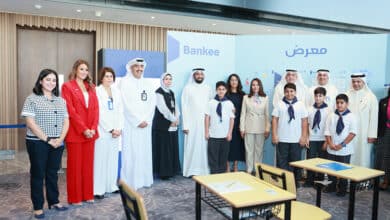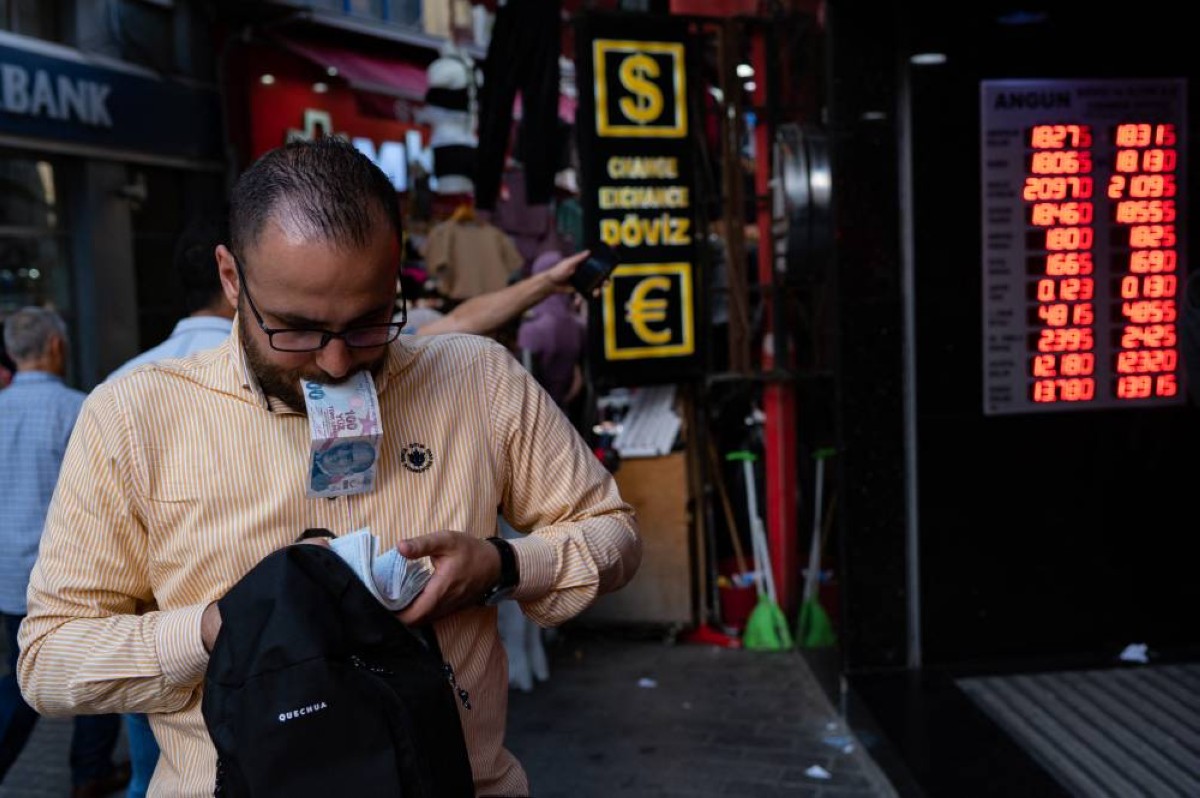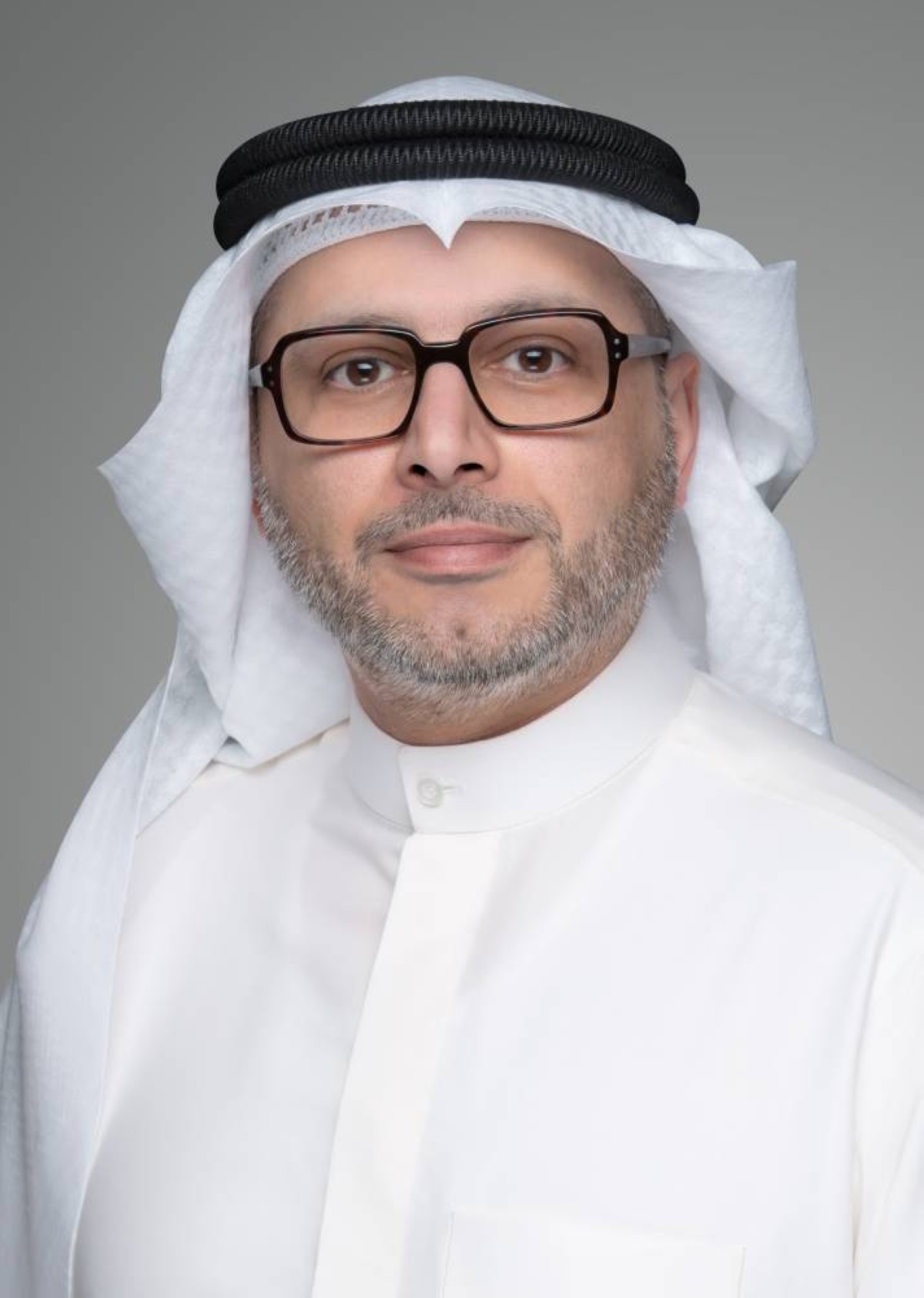NBK launches ‘Bankee’ program in cooperation with MoE and Nazaha
KUWAIT: National Bank of Kuwait (NBK) has signed an MoU with the Ministry of Education (MoE) and Kuwait Authority for Anti-Corruption (Nazaha) to officially launch the “Bankee” program for raising financial literacy among government and private school students, in cooperation with Creative Confidence.

A memorial photo featuring the executive management and representatives of the Ministry of Education and Nazaha.
The agreement was signed at NBK’s HQ in the presence of Isam Al-Sager, Vice-Chairman and Group CEO of National Bank of Kuwait, Saud Al-Juwaiser, Acting Undersecretary of Education, Counselor Nawaf Al-Mahamel, Vice-President of Anti-Corruption Authority (Nazaha), and Sumayah Al-Jasem, Founder, Managing Director at Creative Confidence.
The ceremony was attended by Shaikha Al-Bahar, Deputy Group CEO of NBK and Sulaiman Barrak Al-Marzouq, Deputy CEO of NBK-Kuwait. The attendees also included Faisal A Al-Hamad, CEO – Global Wealth Management , and Emad Al-Ablani, GM – Group Human Resources. In his speech on the sidelines of signing the agreement, Al-Sager stated, “The Bankee program reflects the concerted efforts to raise financial literacy among government and private school students in Kuwait, by providing training for 15,000 students and 3,000 teachers, which is a real investment for them.”
“NBK is confident that this program will make a real difference in the lives of school students by providing them with the required knowledge and skills to manage their finances and make decisions that support their financial future,” he added. “NBK always seeks to actively contribute to the development of this generation of young Kuwaitis and spreading awareness about the importance of financial stability and independence among them. We firmly believe that private sector’s initiatives launched in cooperation with government authorities to provide the young generation with the required knowledge and skills are instrumental to individual as well as social wellbeing and prosperity,” he underscored.
During the signing of the agreement
The audience listens to an explanation as to how the Bankee program works within schools.
KUWAIT: Isam Al-Sagar, Saud Al-Juwaiser and Counselor Nawaf Al-Mahmal during the signing of the agreement.
The first- of-its-kind in Kuwait
“Bankee” is Kuwait’s First Hands-on School Financial Literacy Program, which was launched by NBK with the aim of promoting financial inclusion, especially among school students, in an effort to set the younger generation in Kuwait on a path to a resilient financial future. The program aims to familiarize students with key financial concepts including earning, spending and saving, and financial responsibilities and instilling financial culture, which is done in an innovative and interactive way using classroom economy model.
Moreover, Bankee aims to instill the main values including integrity and transparency, personal growth and development, accountability and responsibility, collaboration and teamwork. It also seeks to raise a generation of a young Kuwaiti generation who recognize the importance of financial wellbeing and independence, and have the required financial knowledge and skills to achieve sustainable development, economic wellbeing for individuals and the community at large.
15,000 students
Having achieved a remarkable success in its pilot phase, Bankee encouraged more schools and students to join it. Out of 150 applicants, 30 schools have been enrolled in the program so far, in addition to a special needs school for learning difficulties (Joan Al-Kuwait Elementary School), with a total of 15,000 students and 3,000 teachers. Bankee also launched its website in Arabic and English, as well as social media pages on Instagram, TikTok and YouTube, to enable all participants to benefit from the provided content, activities and events held at different schools all year round.
Bankee design
Bankee is designed based on the classroom economy model, which simulates a real-world economy within the classroom. This is done in an innovative and interactive way enabling students and teachers to leverage an online tool to make different financial transactions including:
Digital platform
Bankee digital platform serves as a virtual bank, on which students receive their allowance, salaries, bonuses, and fines, and pay their expenses. Each student participating in the program has a virtual bank account, which simulates real-life financial transactions. Bankee currency “Bankoz” is the digital currency used within the program. It is exclusively for school transactions and serves as a medium of exchange for various activities and incentives.
Jobs
At Bankee, students are presented with the chance to apply for classroom-specific or school-wide jobs, which offer them an opportunity to earn additional income or salary. Classroom jobs are tailored to each classroom and encompass roles such as attendance monitor or teacher’s assistant. On the other hand, school jobs involve participating in extracurricular activities at the school level, such as joining the student council and school radio team.
Expenses and payments
Using this feature, students will be able to manage their finances by making payments for classroom-related expenses, such as renting desks and paying utility bills such as water and electricity.
Bonuses and fines
To instill core values and accountability, Bankee incorporates a system of bonuses and fines. Students can receive bonuses for exceptional performance or positive behaviors, while fines may be imposed for rule violations or inappropriate conduct.
Bankee Store
The Bankee Store is a central component of the Bankee program, where students can engage in real-life simulated transactions using the virtual currency, Bankoz. It serves as a practical and interactive platform within the classroom economy, allowing students to experience the process of buying and selling tangible and intangible items, thereby enhancing their financial literacy and decision-making skills.
The physical Bankee Store is typically set up as a designated area within the school, while the online store provides a convenient and accessible platform for students. In both settings, the store offers a wide variety of items and services that are relevant and appealing to students, such as school supplies, toys, stationery, and school privileges. This integrated approach ensures students have a holistic learning experience, developing their financial competence in both physical and virtual marketplaces.
Teachers’ role
Teachers play a crucial role in guiding students through the program, setting financial goals, and monitoring their progress. They act as facilitators and provide support to ensure the successful implementation of the classroom economy model. It is worth mentioning that the pilot phase of Bankee was launched by NBK last year, with the participation of 9 schools from various governorates, including six government and three private schools. The primary objective of this phase is to evaluate the program’s implementation settings by engaging teachers and students in introductory workshops to assess, enhance, and modify implementation features to align with the existing educational curriculum.















